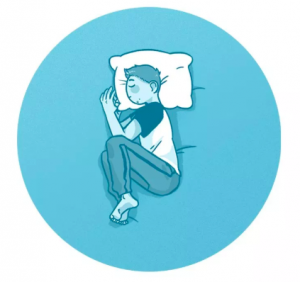
Vitamin E is everywhere. It can help your skin, your hair and even your mind. Here is a breakdown of exactly how vitamin E plays a critical role in your body function.

What are the different types?
Vitamin E has two subgroups and 8 different forms in total, all derived from plant sources.
- Tocopherols. alpha tocopherol, gamma tocopherol, beta tocopherol, and delta tocopherol.
- Tocopherols are extracted from soy oil and wheat germ
- Alpha tocopherols aremost active form in our bodies; the body prefers to store alpha tocopherol helpt body functions.
- Tocotrienols. alpha tocotrienols, beta tocotrienol, gamma and delta tocotrienols.
- Tocotrienol are derived from palm oil.
- Tocotrienols are more permeable to cell-membranes.
What does it do?
- Balances Cholesterol: Certain types of vitamin E act as antioxidants that fight cholesterol oxidation.
- Heart Health: The tocotrienol isomers of vitamin E reduce activity of an enzyme that controls cholesterol production/synthesis, reducing your overall amount of cholesterol. Tocotrienol isomers also prevent cell adhesion and therefore slow down progression of atherosclerosis (hardening/thickening of the arteries). Synthetic vitamin E doesn’t seem to have the same benefits of natural forms.
- Fights Free Radicals and Prevents Disease Development: Vitamin E increases the body’s immune response, therefore helping prevent both common illnesses and serious conditions from forming.
- Repairs Damaged Skin: Vitamin E has anti-aging properties as it strengthens capillary walls, reduces inflammation, and improves skin moisture and elasticity. Its antioxidant properties also help protect your skin and body from UV rays and pollutants.
- Vitamin E speeds up cell regeneration: Vitamin E can be used to treat, acne and wrinkles when it is absorbed by the epidermis layer of the skin.
- Thick Hair: Vitamin E decreases environmental damage to your hair and increases blood circulation to the scalp. Vitamin E oil also prevents the scalp from becoming dry and flakey.
- Balances Hormones: Vitamin E has been shown to help regulate hormone release, preventing hormonal imbalance symptoms such as weight gain, allergies, urinary tract infections, changes in the skin, anxiety and fatigue. It can also improve period symptoms by decreasing cramping pain, severity, and duration, and reducing menstrual blood loss and keeping the menstrual cycle regulated.
- Improves Vision: When taken in conjunction with Vitamin C, beta -carotene, and zinc, Vitamin E decreases the risk of age-related macular degradation, a common cause of blindness.
- Helps People with Alzheimer’s disease: When taken in conjunction with Vitamin C, Vitamin E has been shown to decrease the risk of developing several forms of dementia.
- May Lower Cancer Risk and Improve Effects of Medical Treatments: Vitamin E is sometimes used to lessen the harmful effects of medical treatments, as it’s a powerful antioxidant that fights off free radicals in the body. It’s also used to reduce unwanted side effects of drugs that may cause hair loss or lung damage.
- Improves Physical Endurance and Muscle Strength: Vitamin E increases energy levels and reduces oxidative stress on your muscles from exercise by increasing blood circulation and strengthening capillary walls and increasing nourishment to cells.
- Important During Pregnancy for Growth and Development: Vitamin E plays a role in fetal and adolescent development because it protects critical fatty acids and helps control inflammation. Vitamin E impacts early stages of neurologic and brain development that can only happen during the first trimester of pregnancy. It’s recommended that pregnant women, nursing mothers and children up until the age of 2 take natural, food-based supplements to make sure they’re getting enough to prevent abnormalities.
What are deficiency symptoms?
Can I have too much?
Vitamin E is the safest fat soluble vitamin to take and toxicity is rare, however some problems may occur at high doses:
- Nausea
- Diarrhea
- Reduced ability to clot
- Hemorrhagic stroke
- Stomach cramps
- Fatigue
- Headache
- Blurred vision
- Rash
- Bruising and bleeding.
Where can I find it?

How much should I have?







